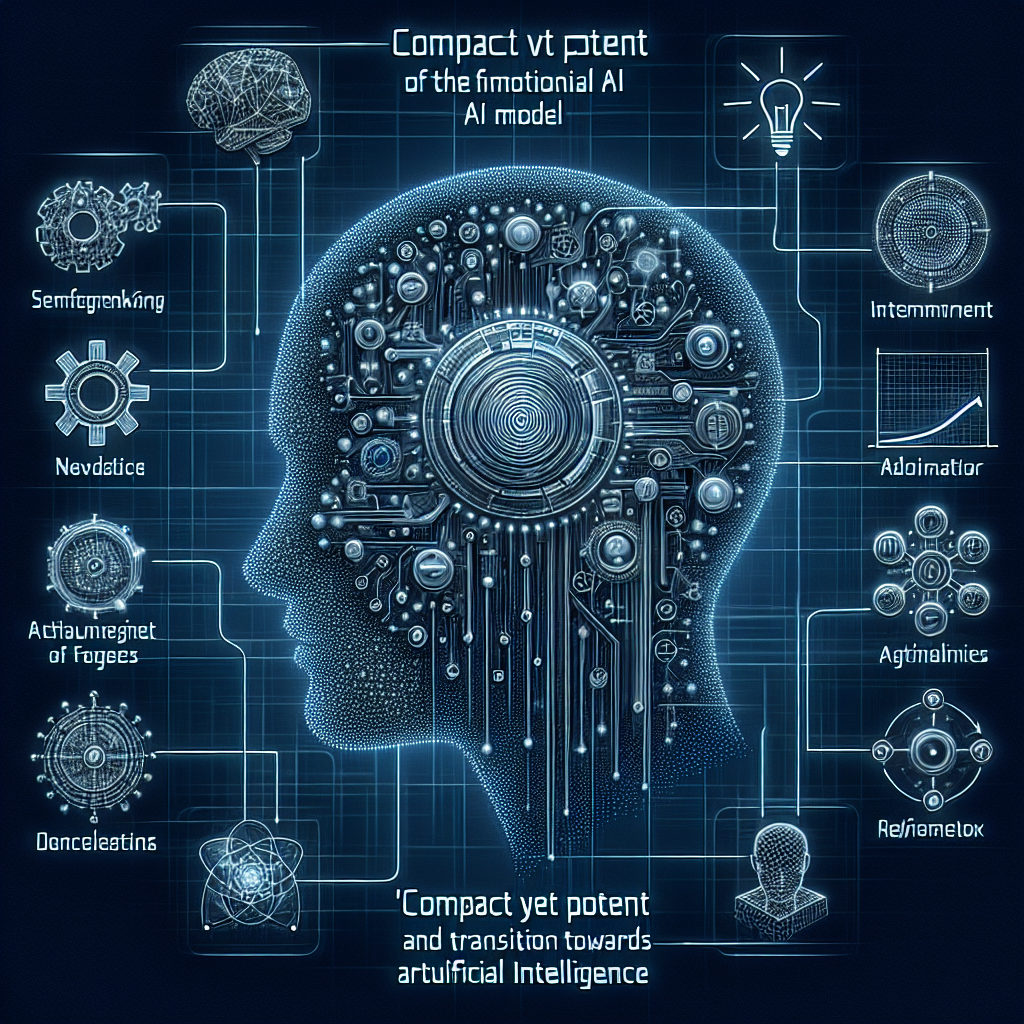“Revolutionizing AI: Microsoft Phi-4 and Ilya Sutskever’s Vision”

“`html
The Revolution of AI: Microsoft Phi-4 and Ilya Sutskever’s Vision
The world of Artificial Intelligence (AI) is experiencing a seismic shift, with groundbreaking advancements and innovative ideas fueling the future of technology. Leading this revolution is Microsoft’s compact yet high-performing language model, Phi-4, and the thought-provoking insights from AI pioneer, Ilya Sutskever. Let’s dive into what these developments mean for the AI landscape.
Microsoft Phi-4: Small Model, Big Impact
Microsoft’s Phi-4 model stands as a testament to how “small” doesn’t necessarily mean “less powerful.” Designed to excel in areas like complex reasoning and mathematical problem-solving, Phi-4 is challenging the dominance of its larger AI counterparts with its unique approach.
- Efficient Architecture: Despite maintaining 14 billion parameters like its predecessor, Phi-3-medium, Phi-4 introduces upgrades like an advanced tokenizer and improved attention mechanisms. These enable the model to process larger inputs more effectively.
- Quality Data Usage: By focusing on high-quality synthetic datasets and human-generated content, Phi-4 abandons traditional web-based sources. This strategy not only enhances its reasoning capabilities but also reduces data contamination risks.
- Benchmark Achievements: Scoring an impressive 91.8 on AMC mathematical tests, Phi-4 outperformed larger models like Google’s Gemini Pro 1.5, proving that size isn’t everything.
- Challenges to Address: As promising as it is, Phi-4 isn’t without flaws. Factual hallucinations and verbose responses during single-turn queries are areas still requiring refinement.
A Paradigm Shift in AI Development
At the annual NeurIPS conference, AI luminary Ilya Sutskever shared his vision of a major transformation in AI training methods. Sutskever suggests that traditional reliance on pre-training large language models might soon take a back seat to “agentic” systems with autonomous decision-making powers.
- The Problem of “Peak Data”: Sutskever compares data availability to fossil fuels, emphasizing that the internet’s finite data pool is being outpaced by rising computational power. This calls for innovative methodologies in training models.
- Moving Beyond Historical Data: Current models depend extensively on unlabeled datasets, but new approaches will be necessary as we scrape the bottom of the data barrel.
- Agentic AI Systems: Sutskever predicts the rise of AI systems capable of independent reasoning and decision-making, potentially reducing reliance on massive historical datasets.
“We are approaching the era of superintelligent, autonomous AI. This will require a complete rethinking of how we train, evaluate, and deploy machine learning models.” – Ilya Sutskever
Key Takeaways for AI Enthusiasts
This dual focus—on making smaller, smarter models like Phi-4 and contemplating the shift to agentic AI systems—lays the groundwork for a more efficient, sustainable, and dynamic future of artificial intelligence. Whether you’re an AI researcher, developer, or just a curious enthusiast, being aware of these trends is crucial.
As Sutskever emphasizes, innovation in AI isn’t just about achieving bigger milestones but also smarter ones. Phi-4 serves as a perfect example that efficiency and quality can coexist, even as the field evolves toward autonomous AI breakthroughs.
Stay Ahead in AI
With such exciting developments on the horizon, staying informed is key. Whether it’s exploring Microsoft’s Phi-4 or keeping an eye on paradigm-shifting ideas from leaders like Ilya Sutskever, one thing is crystal clear: the future of AI is unfolding, and it’s monumental.
Want to dive deeper? Keep learning and stay updated with AI tools and innovations from platforms like Tem.Polor and Oncely. The revolution has just begun!
Hashtags
#ArtificialIntelligence #AITrends #MicrosoftPhi4 #IlyaSutskever #ComplexReasoning #AIModels #FutureOfAI #TechInnovation #AgenticAI #SustainableAI
“`